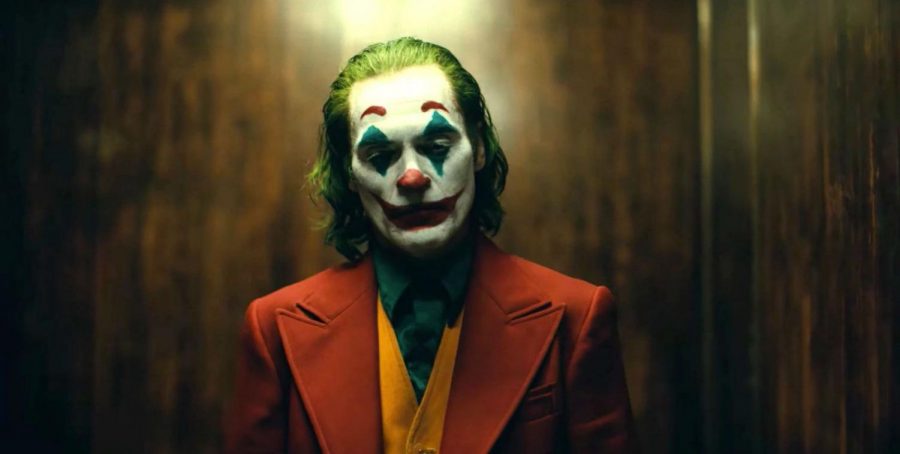“Joker” is terrifying in a way that the typical horror film isn’t. Horror forces its heroes through psychologically arduous obstacles, but in “Joker,” the protagonist serves as both victim and villain. The eponymous character, a downtrodden and shunned Arthur Fleck played by Joaquin Phoenix, is simultaneously cast as an object of pity and the film’s primary agent of chaos. Released Oct. 4, it has since become one of the most widely discussed movies of the year for its frighteningly convincing depiction of insanity and seemingly positive treatment of violence that undercuts society.
The story pits Arthur, an aspiring comedian working a low-paying rent-a-clown gig, against a world of social unrest and senseless hate. Fleck struggles with a number of unspecified mental illnesses as well as a neurological condition that sends him into bursts of unprompted laughter—often at the least opportune moments. He lives with and cares for his feeble mother, has a crush on a neighbor down the hall and obsesses over a late-night talk show host.
Longtime Batman fans aren’t likely to recognize Joaquin Phoenix’s Joker as the hyper-intelligent loose cannon they’ve met in the comics and cartoons, or even in previous Batman films. While Heath Ledger portrayed a cunning terrorist capable of bringing Batman to near-death, in “The Dark Knight” Arthur Fleck is pathetic and bullied, only capable of killing unsuspecting and unarmed victims during sudden fits of rage. What Fleck lacks in power, however, he makes up for in derangement. Essentially stumbling his way into a series of murders, Fleck nearly unwittingly becomes the figurehead of a Gotham-wide riot against the rich. In fact, because multiple scenes in the movie could’ve been outright imagined by Arthur, the movie has a good deal of re-watch value—if only to discern what was real and what wasn’t.
This film’s dark undertones scede new territory for the comic-film genre, exploring a level of gore and mental anguish typically reserved for trippy pieces like “Pulp Fiction” or “Taxi Driver.” Though “Joker” isn’t the first R-rated adaptation of a comic, other examples like “Deadpool” and “Watchmen” usually only leverage gore to aesthetic and comedic ends. “Joker” instead prods at the darkest elements of the mind: mercy killings, shootings and stabbings inextricably tied to the underprivileged angst of the film’s main subject. I spent about the entire movie tensed in my seat, hands holding my temples and poised to cover my ears at the hint of a loud noise.
Spending hours in Arthur’s head also provokes a dangerous emotion—empathy. The film’s treatment of Arthur’s crimes could easily be construed as glorification. On the one hand, positive messages such as a need for increased access to mental health care can be drawn from the story, but they aren’t immediately obvious. “Joker” provides a compelling role model for dangerous people.
As a story, “Joker” is incredibly effective. Phoenix acts superbly, his haunted eyes and serpentine body language embody the role to full effect. But as a political statement, I find the movie worrying— as do a number of other opinion writers at news outlets such as Vox, the New York Times and Slate. A quick google search of the title makes the film’s immediate impact easy to see. The internet has exploded with articles covering the increased police presence at theaters screening “Joker,” as well as online debates regarding the movie’s treatment of mental illness. A consensus hasn’t yet been reached as to whether the story is dangerous enough for concern, or if Phoenix should be included in the running for awards or even if the movie will even have any lasting value past this year. Regardless, I highly recommend you watch “Joker,” if only to better understand the wildfire of a conversation it has sparked.











